Obstacles from teachers to curriculum
In 2022, the Korean Ministry of Education announced plans to make programming a compulsory subject in middle school from 2025 and in elementary school from 2026. This plan is part of a national strategy to develop high-quality human resources in the field of AI and equip the younger generation to master the digital future.
However, the classrooms are not yet ready to produce a generation of AI experts. The biggest obstacle is the shortage of qualified teachers. According to the Ministry of Education, Korea has only 9 universities with computer science departments and enrolls a total of 193 students each year.
If teacher training programs at other schools are included, the total annual enrollment target for the whole country is 434 people. This number is only 11 people higher than in 2021, although the government has been trying to increase the number of IT teachers for many years.
“To train high-quality human resources in AI, we must have more people joining the teaching staff with professional qualifications,” said Congressman Lee Jeong-heon.
Not only that, he also warned that the teaching force is not meeting the practical needs of schools. Specifically, many schools have to assign AI lessons to teachers from other subjects, or rotate 1 teacher who can teach AI to 10 schools.
However, even if teachers are available, textbooks are outdated and out of touch with the times. The current computer science curriculum was revised in 2022, before ChatGPT was introduced. Since then, generative AI has permeated every aspect of school environments.
New directions for teaching AI
“Today’s textbooks do not mention generative AI at all. They only include concepts like data analysis and predictive modeling, but these contents do not match students’ interests and the technologies that affect their lives,” a teacher at a high school in Mapo-gu, Seoul, told local media.
Students now often ask why they don't learn about ChatGPT in class, forcing teachers to create their own lesson plans to make up for the lack of knowledge.
In primary school, the IT subject is only allocated 34 hours/6 school years (accounting for 0.58% of total study time). In secondary school, the study time is 68 hours/3 years (only about 2% of total periods). High school students can even skip this subject, because it is only an elective subject.
Meanwhile, according to international education data, the UK spends 374 hours, Japan 405 hours and Beijing 212 hours on this subject.
In fact, the problem stems from confusion over the definition of “AI education.” Some argue that programming should be the focus, while others believe that data literacy, generative AI skills, or ethics are more important.
The advent of AI tools that can write code on their own also raises questions about whether teaching programming syntax alone is still relevant.
“Instead of simply increasing teacher quotas, we need to clarify the skills that future teachers should be equipped with,” said Professor Kim Hyun-chul of Korea University’s Department of Computer Science . “Teacher training must include the ability to work with AI and how to use it responsibly, not just coding.”
Faced with that situation, the Government has taken steps to prepare an AI education program, nationwide and aimed at all audiences.
To fund the program, the Ministry of Finance plans to include it in the 2026 budget, with funding coming from an increase in the education tax on finance and insurance companies from 0.5% to 1%. This increase is expected to bring in 1.3 trillion won (equivalent to 943 million USD) per year.
Trinh Hang
Source: https://dantri.com.vn/giao-duc/thach-thuc-tren-hanh-trinh-ai-hoa-giao-duc-cua-han-quoc-20250922121123343.htm







![[Photo] General Secretary To Lam and National Assembly Chairman Tran Thanh Man attend the 80th Anniversary of the Traditional Day of the Vietnamese Inspection Sector](https://vphoto.vietnam.vn/thumb/1200x675/vietnam/resource/IMAGE/2025/11/17/1763356362984_a2-bnd-7940-3561-jpg.webp)




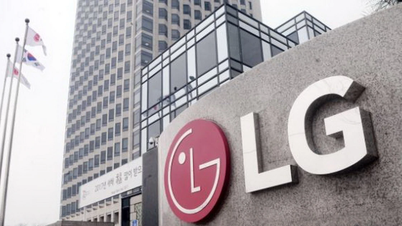





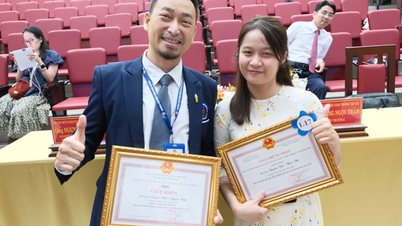

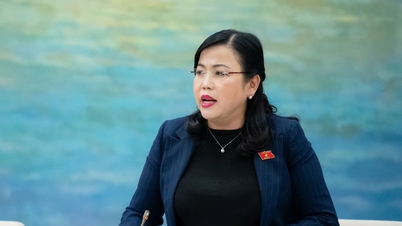










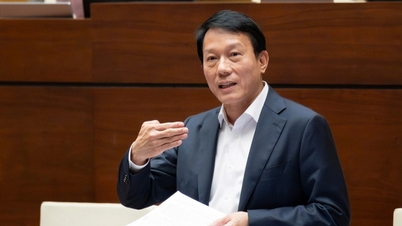

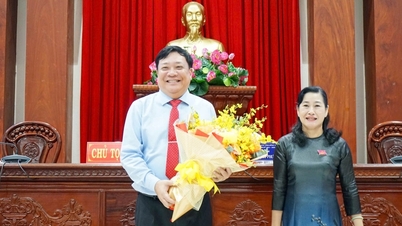

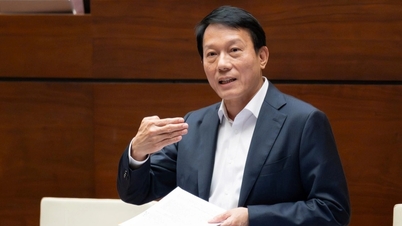























































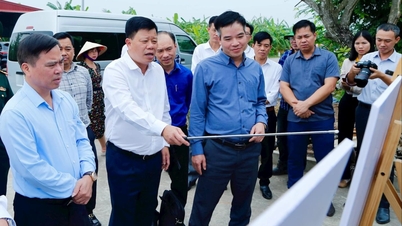














Comment (0)